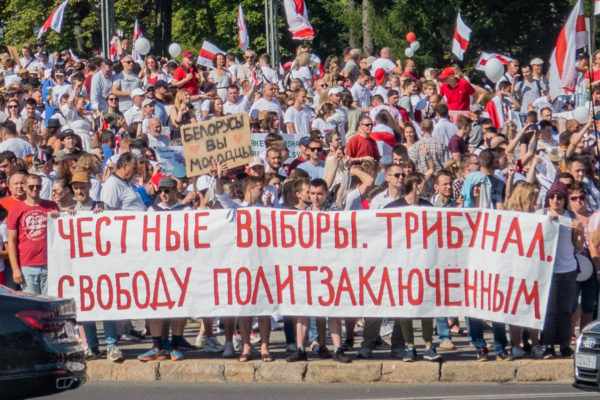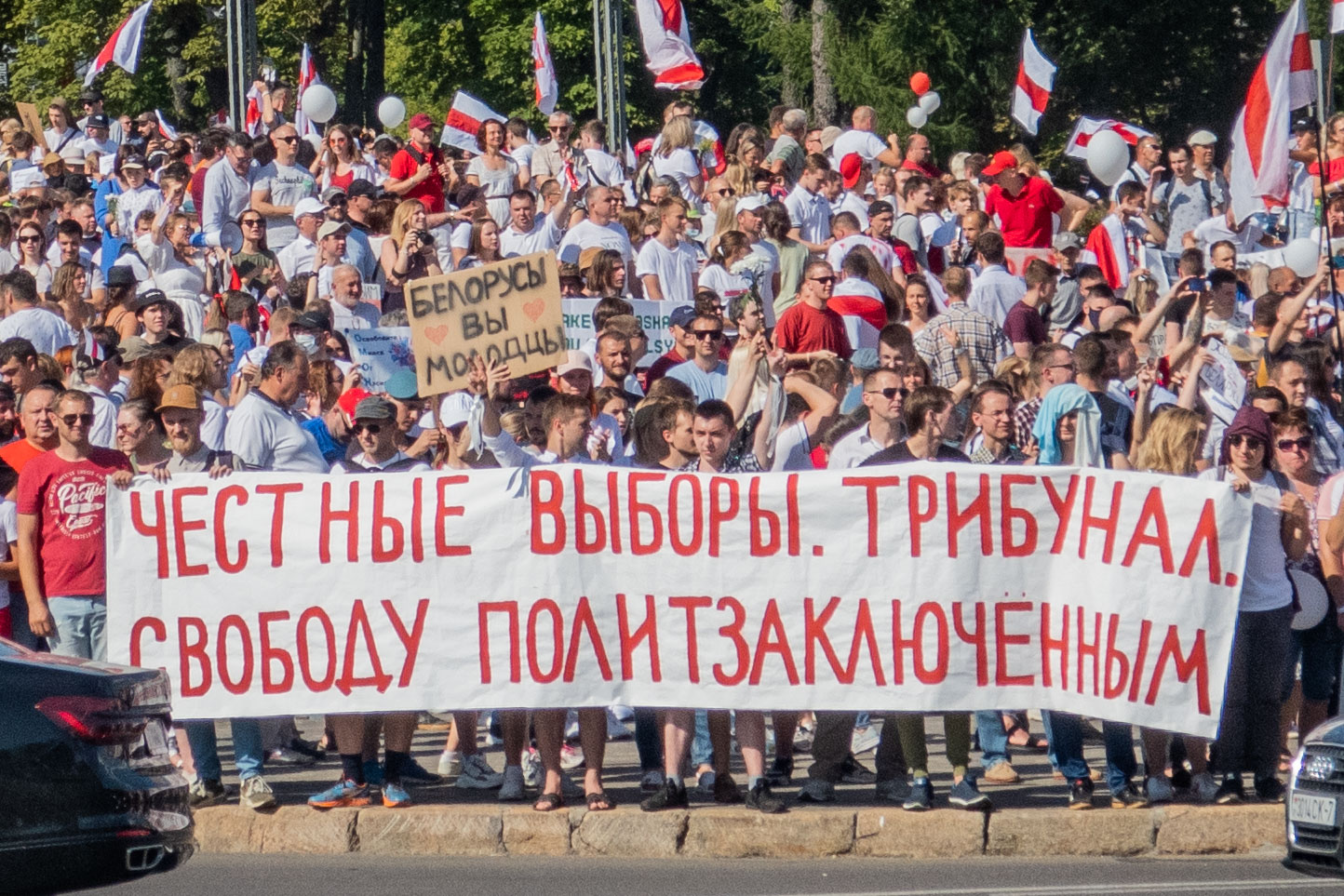Belarusian President Alexander Lukashenko announces he has given orders to end the unrest in the capital Minsk triggered by disputed elections.
The official result gave him 80% of the vote but the opposition has denounced the poll as fraudulent.
The move signaled an escalation just as EU leaders agreed to impose sanctions at a virtual summit.
The President of the European Council, Charles Michel, made clear that the EU did not recognize the result of the election and called on President Lukashenko to release hundreds of protesters who have been imprisoned.
On August 19 Wednesday, President Lukashenko approved a cabinet that would see Roman Golovchenko retain his role as prime minister, with many other key members of the previous government reappointed, the Tut.by news network reported.
Among those on the list to remain in place was Interior Minister Yuri Karayev, whose responsibilities include policing and public security.
The proposed government is subject to further consent by the lower house of parliament.

Belarus Crisis: Russia Pledges Support for Alexander Lukashenko
Belarus Elections 2020: Alexander Lukashenko Wins Presidential Election Marred by Protests
Alexander Lukashekno, who has led Belarus since 1994, said he had ordered police to quell protests in Minsk.
“There should no longer be any disorder in Minsk of any kind,” he told his security council.
“People are tired. People demand peace and quiet,” he added.
President Lukashenko said he had ordered border controls to be tightened to prevent an influx of “fighters and arms”.
He also warned that workers at state media who had gone on strike in protest at the election and the subsequent crackdown on protests that they would not get their jobs back. Russian replacements have reportedly been brought in.
Alexander Lukashenko also accused those picketing outside factories of harassing workers.
He had earlier accused the opposition of “an attempt to seize power”.
His remarks came shortly after the exiled leader of the opposition, Svetlana Tikhanovskaya, had urged EU leaders to reject the election.
Svetlana Tikhanovskaya, 37, who left for Lithuania after being detained for hours following the vote, released a video statement on August 19.
She said President Lukashenko had “lost all legitimacy in the eyes of our nation and the world” and urged the EU to back what she called the “awakening of Belarus”.
Svetlana Tikhanovskaya added: “People who went out to defend their vote in the streets of their cities all across Belarus were brutally beaten, imprisoned and tortured by the regime desperately clinging on to power. This is taking place right now in the middle of Europe.”
She has formed a “co-ordination council” with plans for “new, fair and democratic presidential elections with international supervision”.
After a three-hour video conference, EU Leaders agreed unanimously to take three actions over Belarus.
Firstly, to impose sanctions including asset freezes for an as yet undisclosed number of officials involved in alleged election-rigging, brutality and imprisonment of protesters. The exact sanctions are still being worked out.
Secondly, leaders agreed to a joint form of words making clear that the EU stands with the people on the streets, and does not recognize the result. But it does not go as far as stating they do not recognize President Lukashenko’s authority, as some EU officials wanted.
Thirdly, leaders offered help in trying to mediate dialogue between the government and the opposition, to find a way for the president to stand down and peacefully transfer power.
In addition, €53 million ($63 million) of financial support from the EU to Belarus is being re-assigned away from the state to non-governmental organizations, with some money assigned to help the victims of violence, as well setting up alternatives to government-backed media organizations.
German Chancellor Angela Merkel said Belarus election had been neither free nor fair.
EU leaders, she added, condemned “the brutal violence against demonstrators as well as the imprisonment and use of violence against thousands of Belarusians” which followed in the wake of the disputed election.
Angela Merkel and European Commission President Ursula von der Leyen stressed the need for a dialogue between the authorities and the opposition in Belarus.
